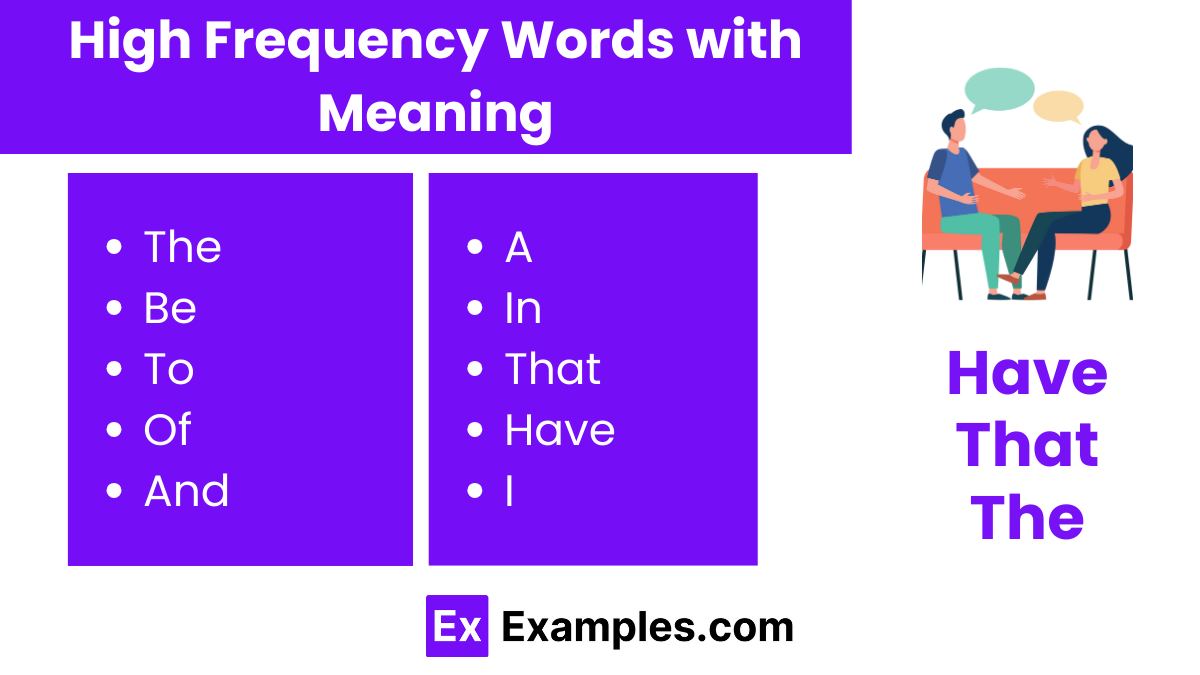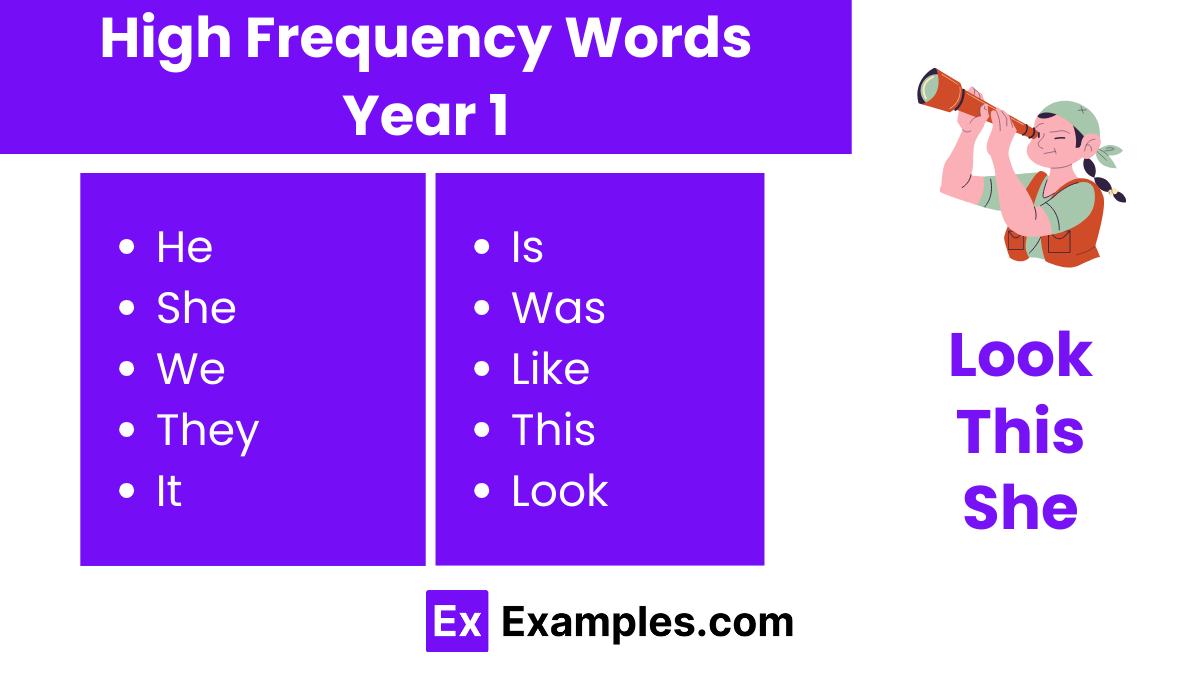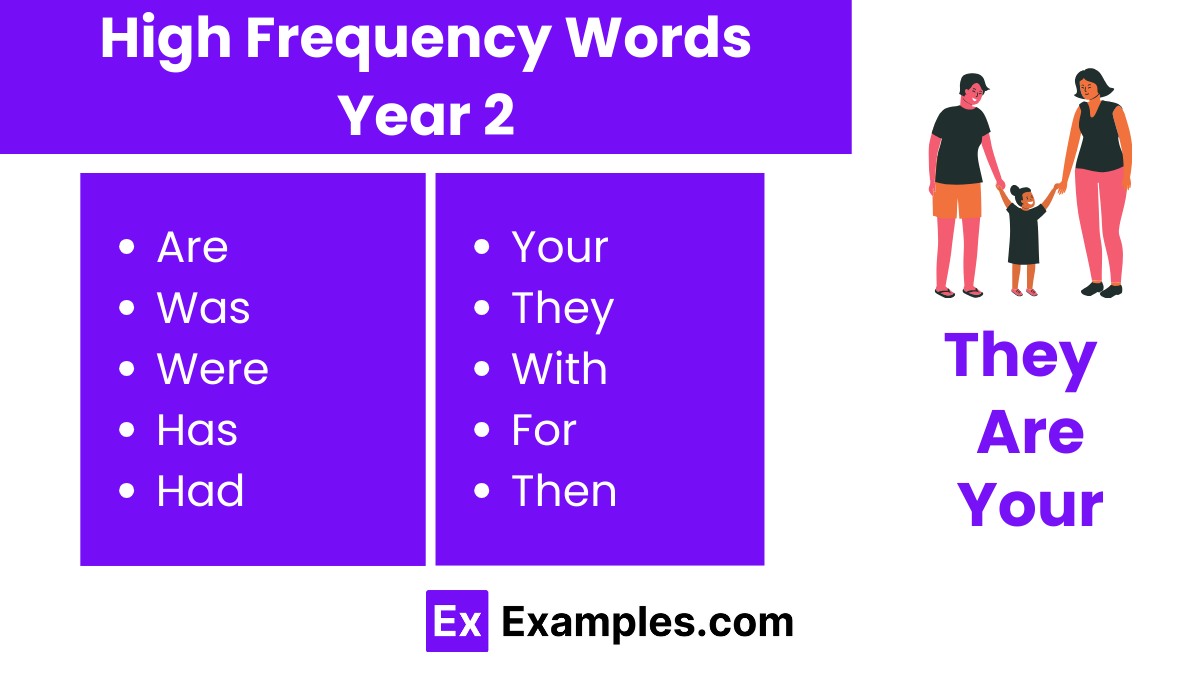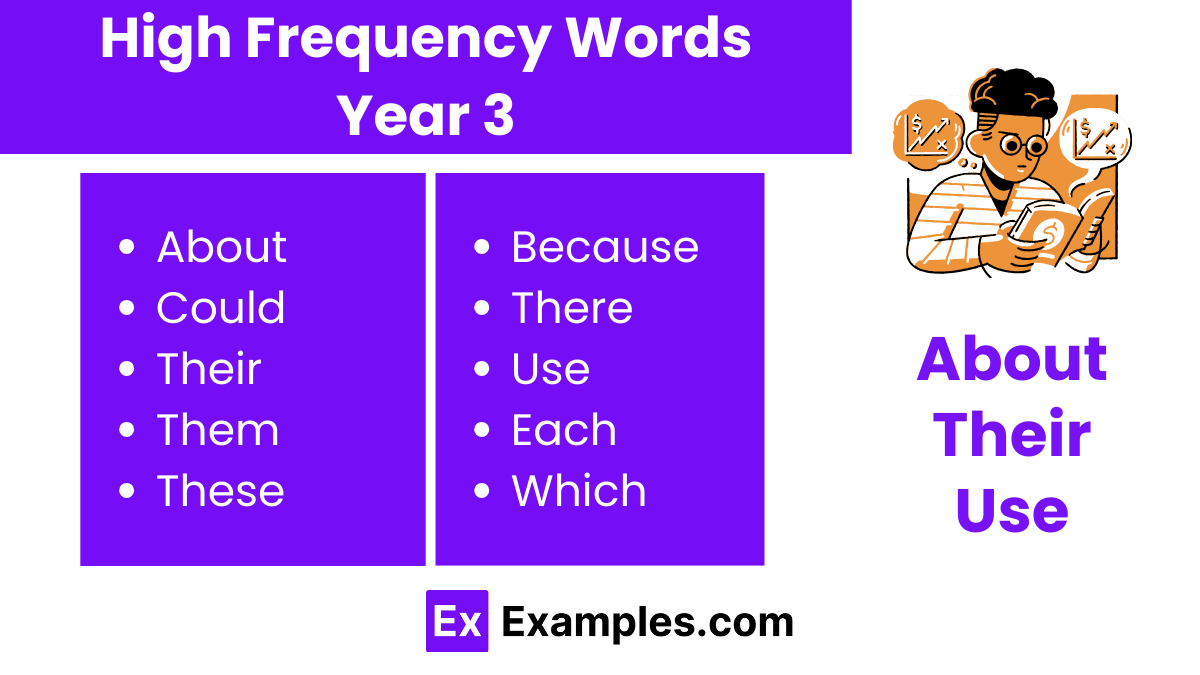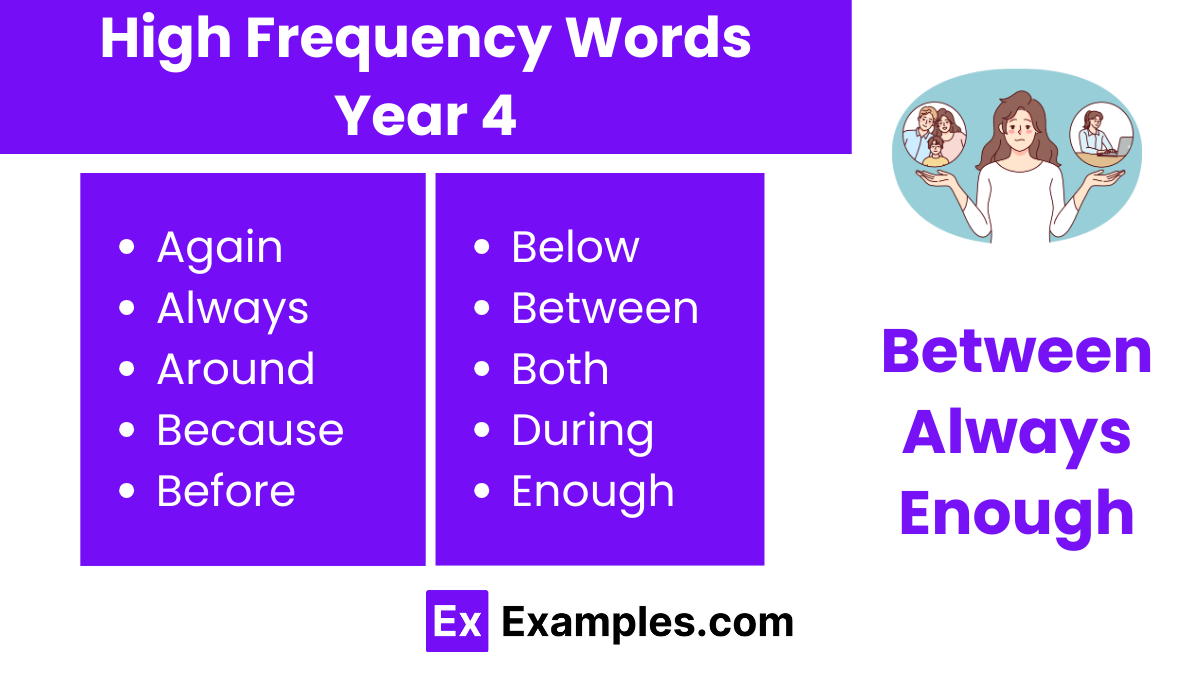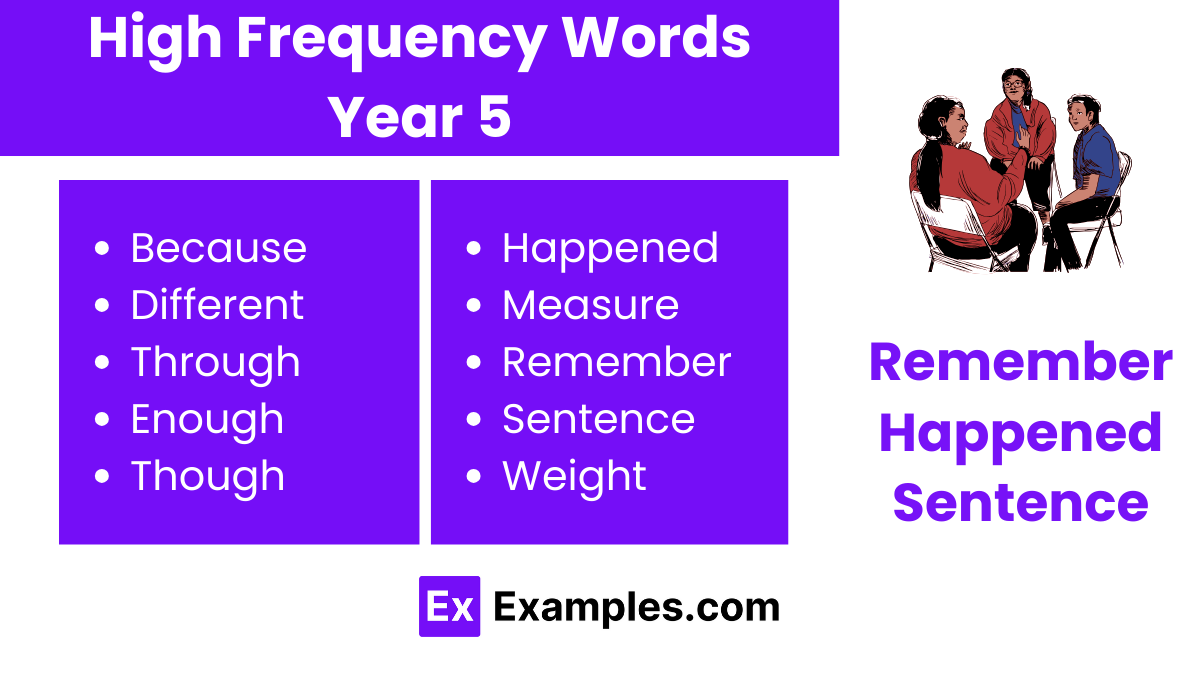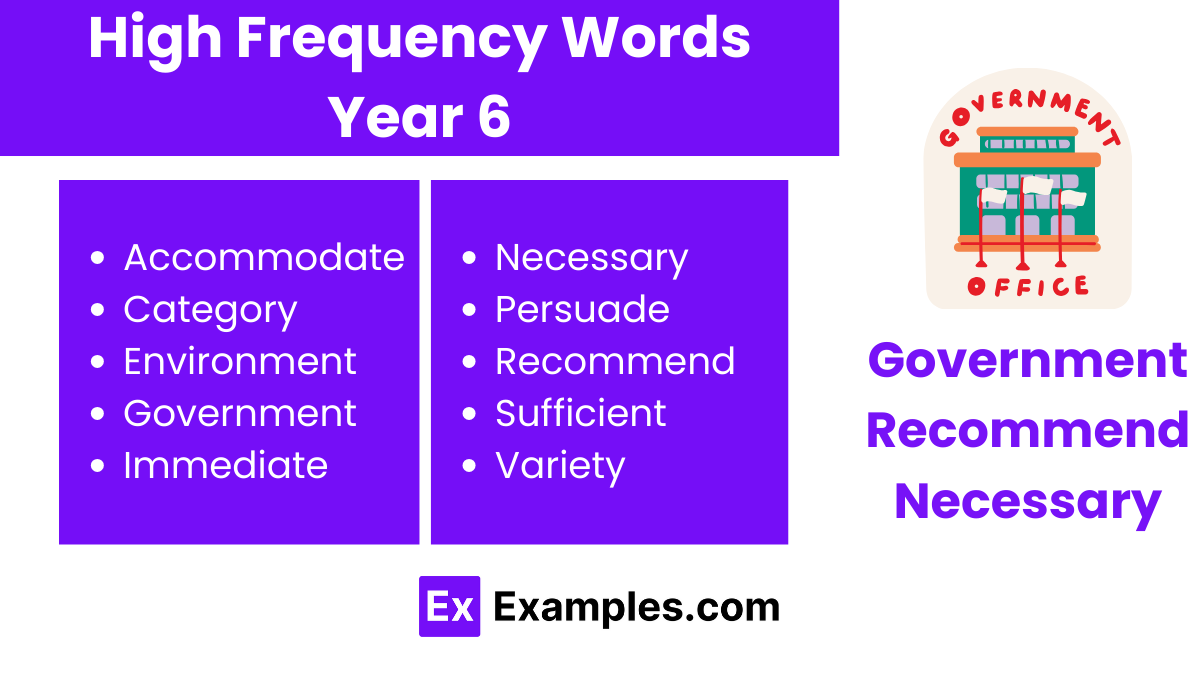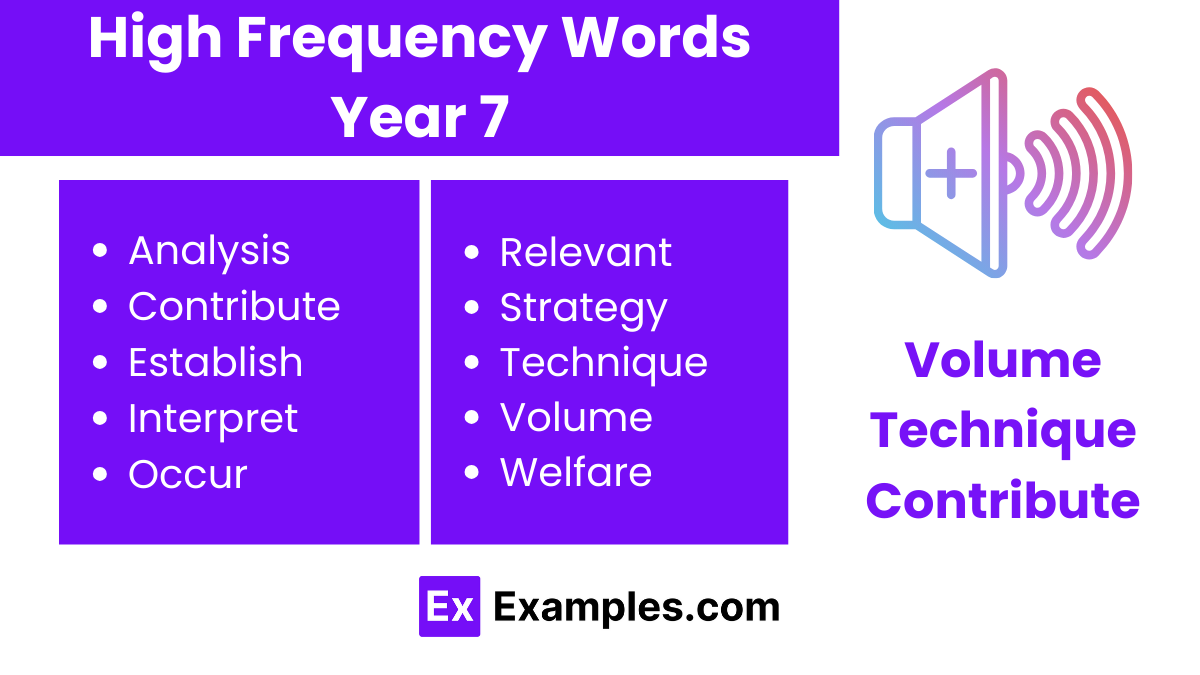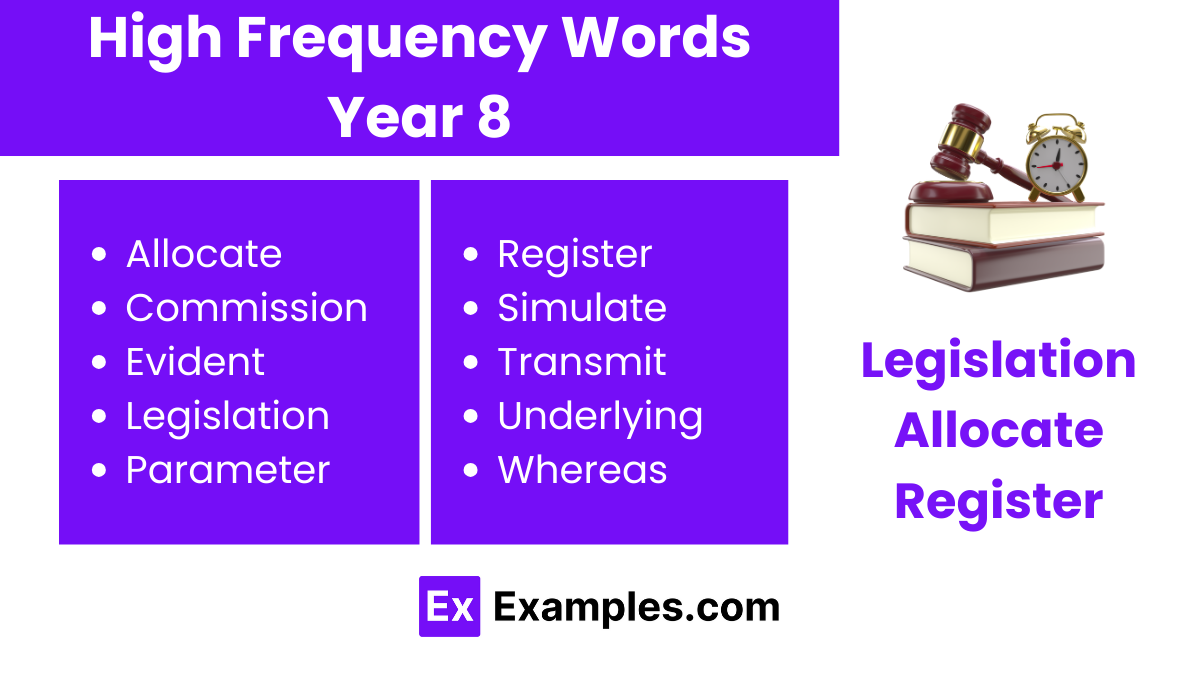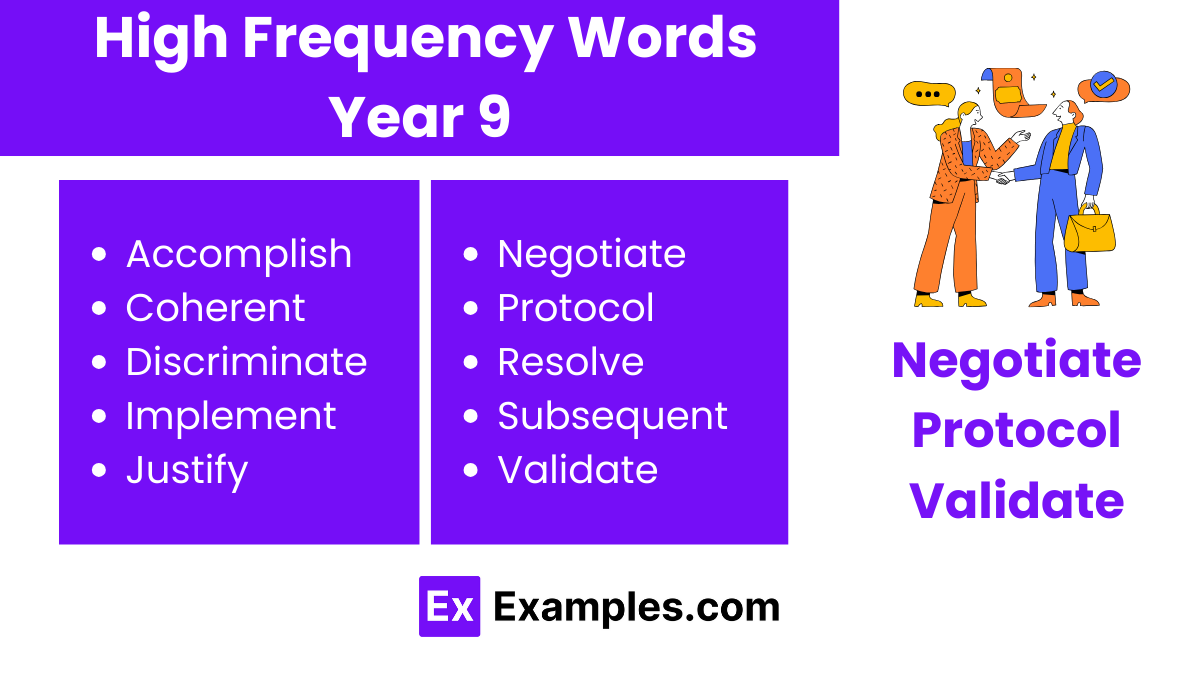450+ High Frequency Words List, Meaning, PDF
High-frequency words are the pillars of language, forming the backbone of our daily communication and literary expression. They are the most commonly used words, woven into the fabric of our conversations, texts, and narratives. Understanding and mastering these words unlocks the door to fluency and comprehension, making reading and writing more accessible and enjoyable. This guide dives into the significance of high-frequency words, shedding light on their role in language learning and effective communication. Join us as we explore the essence of these linguistic keystones, enhancing your vocabulary and linguistic skills.
Download Most Commonly used High Frequency Words - PDF
Most Commonly used High Frequency Words
| the | and | to | of | a | in |
| is | it | you | that | he | was |
| for | on | are | with | as | I |
| his | they | be | at | one | have |
| this | from | or | had | by | not |
| but | what | all | were | we | when |
| your | can | said | there | use | an |
| each | which | she | do | how | their |
| if | will | up | other | about | out |
| many | then | them | these | so | some |
| her | would | make | like | him | into |
| time | has | look | two | more | write |
| go | see | number | no | way | could |
| people | my | than | first | water | been |
| call | who | oil | its | now | find |
High Frequency Words with Meaning
Unlock the power of language with high-frequency words, essential for anyone looking to enhance their communication skills. These words, pivotal in everyday conversations and writings, serve as the foundation of the English language. Mastering them not only boosts comprehension but also enriches your vocabulary, making it a crucial step for language learners at any level.
- The – Used to refer to specific or particular nouns.
- Be – A verb that indicates existence, identity, or possession.
- To – Used for expressing direction or place.
- Of – Expressing the relationship between a part and a whole.
- And – A conjunction used to connect words of the same part of speech.
- A – Used before nouns to specify a single, but not particular, instance.
- In – Indicates location or position within something.
- That – Used to introduce a clause expressing a reason or purpose.
- Have – To possess, own, or hold.
- I – The pronoun used by a speaker to refer to themselves.
High Frequency Words for Kindergarten
Kindergarten marks the beginning of a child’s academic journey, and mastering high-frequency words is a key milestone in this stage. These words, fundamental for early reading skills, help young learners decode texts more efficiently, fostering a love for reading and learning.
- I – Refers to oneself.
- Me – The object form of “I”.
- My – Denoting possession by the speaker.
- Go – To move or travel somewhere.
- See – To perceive with the eyes.
- Can – Expressing ability or permission.
- The – Used to specify a particular thing or person.
- To – Expressing motion in the direction of (a particular location).
- And – Used to connect words together, indicating addition.
- You – Used to refer to the person or people that the speaker is addressing.
High Frequency Words Year 1
In Year 1, children expand their vocabulary with high-frequency words that are crucial for developing reading and writing fluency. This list is designed to enrich educational content, offering a keyword-rich tool for parents and teachers aiming to support children’s literacy skills with an instructive tone.
- He – Used to refer to a male.
- She – Used to refer to a female.
- We – Used by a speaker to refer to themselves and one or more other people.
- They – Used to refer to two or more people or things.
- It – Used to refer to a thing previously mentioned or easily identified.
- Is – Third person singular present of “be”.
- Was – Past tense of “be”.
- Like – To enjoy or approve of something or someone.
- This – Used to identify a specific person or thing.
- Look – To direct one’s gaze towards someone or something.
High Frequency Words Year 2
As children progress to Year 2, their vocabulary grows to include more complex high-frequency words. These words are essential for enhancing reading comprehension and writing clarity. Our list is designed to be providing educators and digital content creators with a valuable resource for developing engaging and educational material.
- Are – Plural form of “is”.
- Was – Past tense of “be”.
- Were – Past plural form of “be”.
- Has – Third person singular present tense of “have”.
- Had – Past tense of “have”.
- Your – Denoting possession by the person or people addressed.
- They – Used to refer to two or more people or things previously mentioned.
- With – Accompanied by another person or thing.
- For – Indicating the purpose of an object or action.
- Then – At that time; at the time in question.
High Frequency Words Year 3
In Year 3, students encounter high-frequency words that facilitate more advanced reading and comprehension skills. These words, critical for academic success, support students in understanding more complex texts. Our carefully selected list is aimed at helping educators, parents, and content creators enrich the learning experience with relevant and meaningful content.
- About – On the subject of; concerning
- Could – Past tense of “can,” used to indicate possibility.
- Their – Belonging to or associated with the people or things previously mentioned or easily identified.
- Them – Used to refer to two or more people or things previously mentioned or easily identified.
- These – Plural of “this,” used to refer to two or more people or things close to the speaker.
- Because – For the reason that; since.
- There – In, at, or to that place or position.
- Use – Take, hold, or deploy (something) as a means of accomplishing or achieving something; employ.
- Each – Used to refer to every one of two or more people or things, regarded and identified separately.
- Which – Asking for information specifying one or more people or things from a definite set.
High Frequency Words Year 4
By Year 4, students are deepening their understanding of the English language, ready to tackle more challenging texts and concepts. High-frequency words at this stage are crucial for developing advanced reading comprehension and writing proficiency. These words often include more complex verbs, adjectives, and adverbs, as well as conjunctions that help in crafting detailed sentences and expressing nuanced thoughts. This selection of words not only aids in academic growth but also in fostering a love for the intricacies of language, encouraging students to explore and utilize a broader vocabulary in their everyday communication and creative writing.
- Again – Another time; once more.
- Always – At all times; on all occasions.
- Around – Located or situated on every side.
- Because – For the reason that.
- Before – During the period of time preceding a particular event, date, or time.
- Below – At a lower level or layer.
- Between – At, into, or across the space separating two objects or regions.
- Both – Used to refer to two people or things, regarded and identified together.
- During – Throughout the course or duration of (a period of time).
- Enough – As much or as many as required.
High Frequency Words Year 5
For Year 5 students, enhancing vocabulary with high frequency words is vital for building strong reading and writing foundations. These words, often encountered in various texts, are essential for achieving fluency and understanding. Our guide not only introduces these pivotal words but also provides their meanings, aiding in sentence construction and comprehension. Incorporating these words into daily practice can significantly improve language arts skills, making the learning process both effective and enjoyable. Focus on these words to foster optimal language development.
- because – for the reason that.
- different – not the same as another or each other.
- through – moving in one side and out of the other side of.
- enough – as much or as many as required.
- though – despite the fact that; although.
- happened – took place; occurred.
- measure – ascertain the size, amount, or degree of something.
- remember – have in or be able to bring to one’s mind an awareness of someone or something.
- sentence – a set of words that is complete in itself.
- weight – a body’s relative mass or the quantity of matter contained by it.
High Frequency Words Year 6
By Year 6, understanding high frequency words is crucial for navigating through complex texts and concepts. These words serve as the foundation for advanced reading and writing, enabling students to comprehend and express ideas more effectively. Our curated list includes meanings, supporting students in mastering vocabulary that is essential for academic success. Regular practice with these words will enhance comprehension and confidence in language skills.
- accommodate – provide lodging or sufficient space for.
- category – a class or division of people or things regarded as having particular shared characteristics.
- environment – the surroundings or conditions in which a person, animal, or plant lives or operates.
- government – the governing body of a nation, state, or community.
- immediate – occurring or done at once; instant.
- necessary – required to be done, achieved, or present; needed; essential.
- persuade – cause (someone) to do something through reasoning or argument.
- recommend – put forward (someone or something) with approval as being suitable for a particular purpose or role.
- sufficient – enough; adequate.
- variety – the quality or state of being different or diverse; the absence of uniformity or monotony.
High Frequency Words Year 7
As students enter Year 7, they encounter more sophisticated language. High frequency words at this level are key to supporting analytical and creative writing. Understanding these words, along with their meanings, aids in the transition to complex language use, enhancing both academic and everyday communication. Our list is designed to expand vocabulary and ensure students are well-equipped for diverse subjects.
- analysis – detailed examination of the elements or structure of something.
- contribute – give (something, especially money) in order to help achieve or provide something.
- establish – set up (an organization, system, or set of rules) on a firm or permanent basis.
- interpret – explain the meaning of (information or actions).
- occur – happen; take place.
- relevant – closely connected or appropriate to the matter at hand.
- strategy – a plan of action designed to achieve a long-term or overall aim.
- technique – a way of carrying out a particular task, especially the execution or performance of an artistic work or a scientific procedure.
- volume – a book forming part of a work or series.
- welfare – the health, happiness, and fortunes of a person or group.
High Frequency Words Year 8
In Year 8, mastering high frequency words is essential for deepening critical thinking and analysis. These words unlock complex texts and are crucial for academic success. Our guide includes meanings to expand vocabulary, improve reading comprehension, and enhance writing clarity. Engaging with these words prepares students for advanced studies and promotes a comprehensive understanding of language.
- allocate – distribute (resources or duties) for a particular purpose.
- commission – an instruction, command, or duty given to a person or group of people.
- evident – plain or obvious; clearly seen or understood.
- legislation – laws, considered collectively.
- parameter – a numerical or other measurable factor forming one of a set that defines a system or sets the conditions of its operation.
- register – an official list or record.
- simulate – imitate the appearance or character of.
- transmit – cause (something) to pass on from one place or person to another.
- underlying – be the cause or basis of (something).
- whereas – in contrast or comparison with the fact that.
High Frequency Words Year 9
Approaching the final years of schooling, Year 9 students benefit from a robust vocabulary. High frequency words support critical reading and effective communication. Our selection, with meanings, prepares students for exams and further education, enriching both their academic and personal lives.
- accomplish – achieve or complete successfully.
- coherent – logical and consistent.
- discriminate – recognize a distinction; differentiate.
- implement – put (a decision, plan, agreement, etc.) into effect.
- justify – show or prove to be right or reasonable.
- negotiate – try to reach an agreement or compromise by discussion with others.
- protocol – the official procedure or system of rules governing affairs of state or diplomatic occasions.
- resolve – settle or find a solution to (a problem, dispute, or contentious matter).
- subsequent – coming after something in time; following.
- validate – check or prove the validity or accuracy of (something).
High Frequency Words Year 10
For Year 10 students, high frequency words are indispensable for academic achievement. These words are vital for engaging with complex materials and expressing ideas clearly. Our guide prepares students for GCSEs and beyond, with meanings included to ensure a deep understanding of each word.
- analyse – examine in detail the structure of (something, especially information), typically for purposes of explanation and interpretation.
- criteria – a principle or standard by which something may be judged or decided.
- exemplify – be a typical example of.
- integrate – combine (one thing) with another so that they become a whole.
- mechanism – a system of parts working together in a machine; a piece of machinery.
- process – a series of actions or steps taken in order to achieve a particular end.
- reinforce – strengthen or support, especially with additional personnel or material.
- significant – sufficiently great or important to be worthy of attention; noteworthy.
- theoretical – concerned with or involving the theory of a subject or area of study rather than its practical applications.
- variable – not consistent or having a fixed pattern; liable to change.
High-frequency words form the bedrock of literacy, serving as critical tools for effective communication and comprehension across all ages. From the foundational stages in kindergarten to the more complex applications in Year 4, mastering these words empowers students to navigate the intricacies of language with confidence, enhancing their reading, writing, and verbal skills for academic success and beyond.





